Back today with round two of this month’s Quick Lit reviews. It’s an eclectic mix of thought-provoking nonfiction, love stories, and mystery. Let’s get right to the reviews!
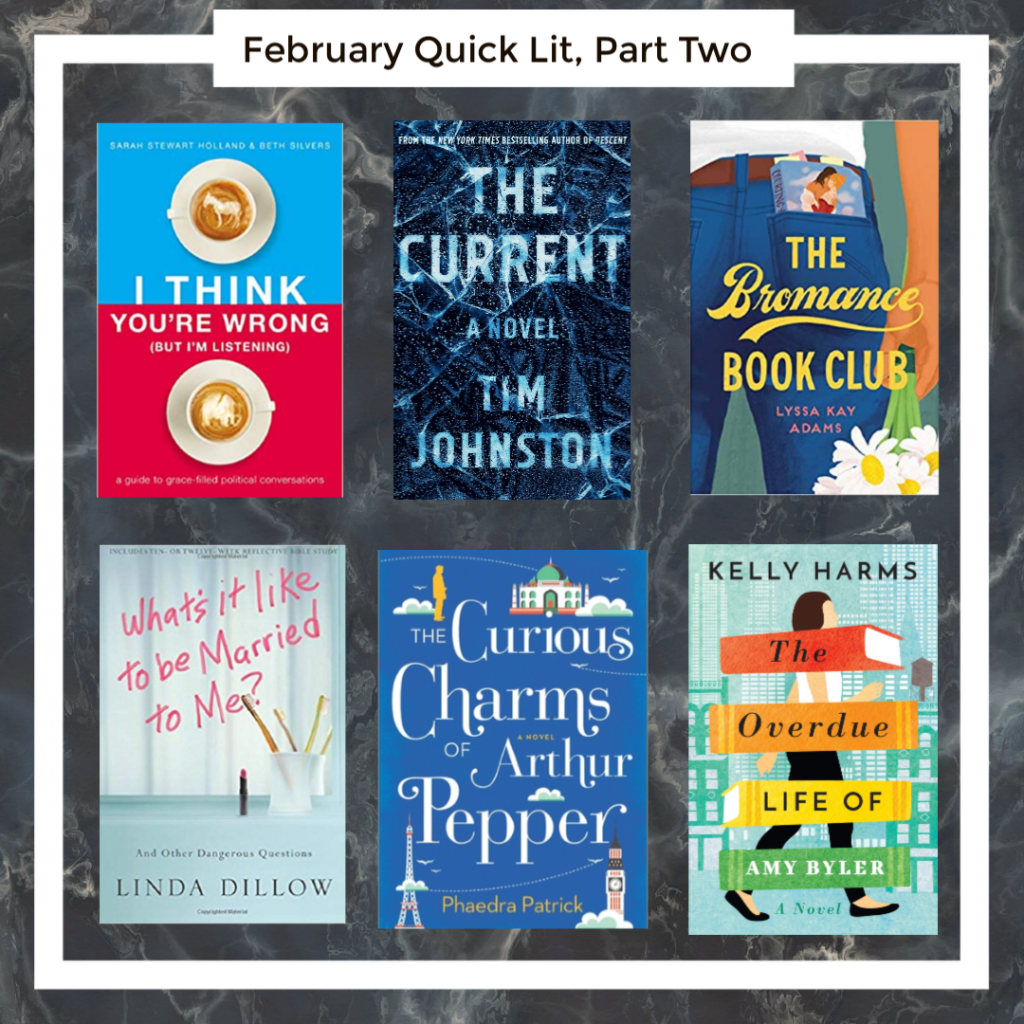
The Bromance Book Club, by Lysa Kay Adams: Major League baseball player Gavin Scott had thought he and Thea, his wife of three years, shared a happy marriage. But when he discovers that she has spent their entire relationship faking it in bed, it leads to an argument that has Thea filing for divorce. Desperate to save his marriage, Gavin agrees to the help offered by an unlikely source: a group of Nashville athletes who form a secret romance book club. Gavin joins the club in their current read, a steamy Regency romance, and with the guys’ support, he begins implementing the grand gestures and romantic language from the novel in his attempts to reclaim his wife’s heart.
For someone who claims to not be a fan of romance novels, I’ve certainly read quite a few of them lately. The premise behind this one was just too cute to pass up! I loved the idea of a group of macho guys getting together to discuss love stories. I also liked the twist of a husband pursuing his wife, which felt more substantial to me than the meet-cute premise that seems to be at the center of most romances. Overall, this unique story is well executed. The dialogue is witty, the side characters humorous (if a bit archetypal), and the love story is sweet and heartfelt. I adored the character of Gavin, who is charmingly flawed yet eager to make amends. Unfortunately, I strongly disliked Thea, whom I found petty, selfish, deceitful, and undeserving of Gavin’s wholehearted pursuit.
The Bromance Book Club is FAR steamier than anticipated—likely the most X-rated novel I’ve read—and the discomfort I felt when listening to the bedroom scenes was a huge reminder of why I usually steer clear of this genre. (Maybe I should only read romances with my eyes and not my ears so I can easily skip over those parts?) I was also annoyed by the overt feminism, and I found the basis for Gavin and Thea’s disagreement completely ridiculous. Still, this is a fun, endearing read that true romance fans will devour.
My Rating: 3.5 Stars.
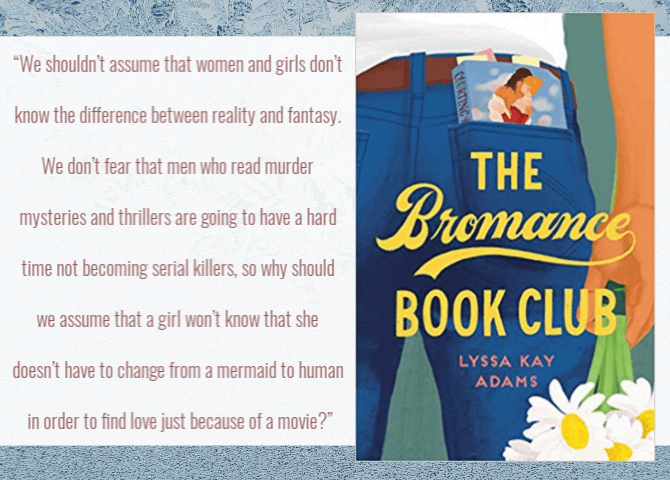
What’s It Like To Be Married To Me? And Other Dangerous Questions, by Linda Dillow: The female half of our community group read this book together for our most recent book study. Written by a woman who has been married for nearly fifty years, What’s It Like to Be Married To Me invites wives to ask hard questions of ourselves about how we are showing up in our marriages. After sharing her own experience and those of other women in her ministry, Dillow leads readers in reflecting on our own marriage-related attitudes, behaviors, and perspectives. Chapters with titles like “what is really important to me?” and “”what does it feel like to be my husband?” provide a framework for marriage purpose statements that take a “big picture” view of our relationships, while “what is it like to make love with me?,” ”why do I want to stay mad at you?,” and “is it possible to grow together when things fall apart?” focus in on more specific issues such as intimacy, forgiveness, and perseverance.
This is a challenging read that definitely left me feeling convicted about the lack of intentionality I bring to my marriage. Dillow’s words drew my attention to the bad habits I’ve developed in eleven years of marriage, made me want to become a more invested wife, and gave some good tips on how to achieve a marriage that reflects Christ’s connection to the Church—something I have always wanted from my relationship with Luke. I especially liked the idea of developing a marriage purpose statement, and the final chapter about long-lasting love brought me to tears and reminded me how much I desire this for my relationship with Luke. (The chapter was my inspiration for this post.)
While the book prompted some great self-reflection and discussion with the other women in my group, I had a hard time with the tone, which seems to place the burden of a healthy marriage squarely on the wife’s shoulders while giving husbands a free pass. I understand this perspective: this is a book for wives, and WE are the only ones we can change, so it shouldn’t be focused on our husbands, their attitudes, or their behaviors. However, the subliminal message seems to position women in an overly passive role without acknowledging the partnership that exists between a husband and wife. Chapters on forgiveness and intimacy seem to excuse behaviors such as abuse and overemphasize female sexuality while disregarding many of a wife’s preferences and needs.
There are a LOT of stories included in this book, and I didn’t care for the way that they are messily woven into the overarching messages. I felt that fewer in-depth case studies would have been a more effective way of conveying various messages. I also could have done without the overly descriptive (and prescriptive) stories in the chapter on sexual intimacy: vague would have been just fine, I didn’t need x-rated play-by-plays of other women’s love lives!
If you are looking to step up your game within your marriage, you’ll find some great tools and helpful perspective shifts here, but you’ll need to do quite a bit of skimming to get to the meat of the book. Definitely recommend reading this with a group, as it provides some good discussion starters (and you’ll want somebody to laugh/cringe alongside you when getting to the stories!).
My Rating: 3.5 Stars.
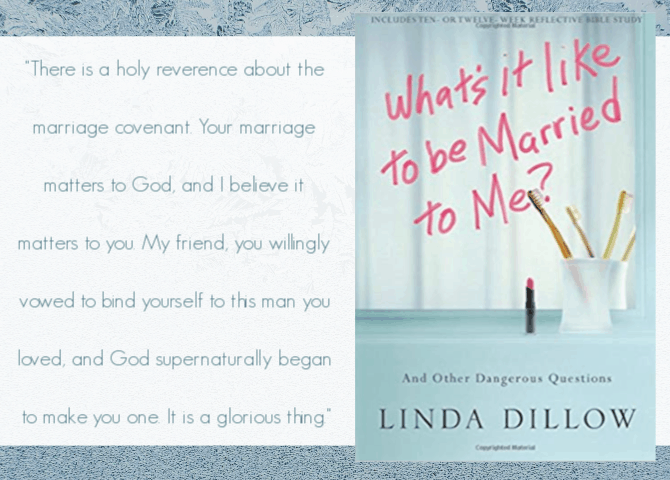
The Overdue Life of Amy Byler, by Kelly Harms: Three years ago, Amy Byler’s husband John unexpectedly abandoned her and their two kids for a new life (and a new woman) in Hong Kong. When John comes back to Pennsylvania, hoping to make amends by offering to watch the kids for the summer so that Amy can have some time to herself, she reluctantly accepts the offer. Before she knows it, a week-long librarians’ conference in New York City has turned into a full-blown “momspringa” with Amy shedding her image of frazzled single mom and school librarian for a new look, an all-expenses-paid luxurious lifestyle, and a sea of interested suitors . . . including one particularly good-looking librarian. Amy finds that she hardly misses her old life or even her children. But then a crises forces Amy to take a hard look at her choices and make a firm decision about what she wants out of life.
This is a fun and very clever novel whose quirky characters and witty dialogue had me chuckling from start to finish (even during the sad parts). I loved the idea of a bedraggled single mom having the time of her life in the big city, and of course her experience prompted me to ponder how I might enjoy my own momspringa (spoiler: not in the ways Amy does, that’s for sure!). I appreciated the insights into parenthood, particularly the exploration of the sacrifices we moms make and how they might not always lead to the outcomes we hope for or expect.
While I didn’t love the trajectory of Amy’s story, nor did I agree with many of her decisions, her journey made for some entertaining and thought-provoking reading. I could have done without the romantic storyline, but I loved Amy’s sweet-but-sassy relationship with her teen daughter as well as the numerous book references. It was also nice to read about a middle-aged protagonist who still has plenty of life left to live.
My Rating: 4 Stars.
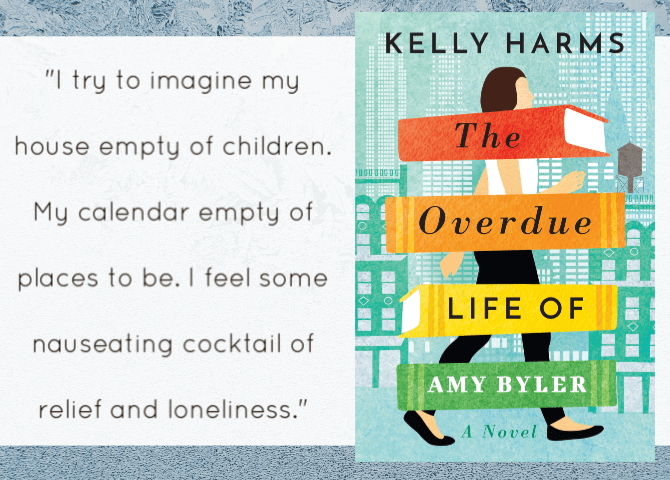
I Think You’re Wrong (But I’m Listening): A Guide to Grace-Filled Political Conversations, by Sarah Stewart Holland and Beth Silver: In our increasingly polarized political climate, most of us have grown gun-shy about expressing our views, especially with those whom we know won’t agree with us. Conversations are heated and rarely end well, and while many of us would like to engage in productive dialogue with those whose views differ from our own, we have very few models for how to do so.
A few years ago, college acquaintances Sarah (a Liberal) and Beth (a Conservative) decided to address this problem when they began Pantsuit Politics, a podcast designed to share two political perspectives from opposite ends of the spectrum, but in a style marked by nuance and grace instead of vitriol. Rather than debating one another, their conversations would be aimed at finding common ground.
In I Think You’re Wrong, Sarah and Beth guide readers in taking an approach to political conversations that mirrors those that Sarah and Beth have on their podcast. Their suggestions are founded on their shared belief that we can choose to: respect the dignity of every person; recognize that issues can’t be reduced to political talking points; listen in order to understand; and lead with gentleness and patience. They share stories of how they have done this in their own left/right relationship, and they offer numerous examples of solutions they have jointly agreed upon to address pollarizing issues such as health care, welfare, and abortion.
I am a huge fan of this book’s premise. Like many, I find our political climate confusing and don’t always know how to share my convictions in ways that will be helpful and not come across as attacking. This desire for nuanced political discussion (one that sets party alliances aside) led me to listen to Pantsuit Politics several years ago. However, I eventually stopped listening for the same reasons that I didn’t love this book: while Beth and Sarah claim to be from opposite ends of the political spectrum, they are both quite liberal. The two agree on many issues, largely because they are coming from the same side, and in their unity, their conclusions frequently ignore the conservative perspective altogether. At times their tone and talking points even demean right-leaning perspectives, which is exactly what they purport to be against. Their similar stances makes it difficult for me trust the genuineness of their claims that unity is possible between individuals with disparate views.
Another frustration with the book is that the authors make frequent references to their Fatih without really getting into what that faith looks like for them. They make bold statements about God and the Bible that I don’t entirely agree with, and they haphazardly pick and choose verses and stories from Scripture to back up their views. I share their Christian faith, yet my beliefs have led to some very different political convictions.
Specific viewpointss aside, the book disappoints in other ways: it is short, yet surprisingly repetitive, and the reliance on specific issues (without many actionable tips for achieving political harmony) makes it timely, but not necessarily relevant in the years to come. The book also bypasses a lot of the logistics of politics, offering solutions that are entirely impractical. I really wanted to like this book, and am glad that I read it, but ultimately it didn’t offer what I was looking for.
My Rating: 3 Stars.
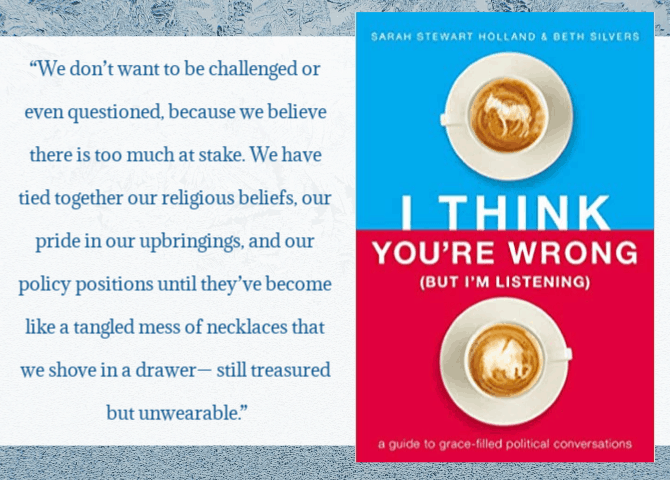
The Current, by Tim Johnston: In the middle of winter, college friends Audrey and Caroline embark on a road trip to Audrey’s midwestern hometown in order for Audrey to be with her father as he nears the end of his battle with cancer. Before they arrive at their destination, their car plummets into an icy river and only Audrey survives. The accident prompts Audrey to investigate the unsolved murder of another teen girl who lost her life in this same river ten years earlier. Her search for the truth unveils layers of deceit, destruction, and disfunction within her home town and possibly even her own home.
This is a complicated book to review. At its surface, it’s a fairly traditional mystery, yet it features the complex narrative style, figurative language, and character development of literary fiction. I tend to like these elements in my thrillers, but here they seem at mixed purposes with the plot; I found the stylized writing distracting, and the story difficult to follow. This confusion wasn’t helped by the surplus of characters and the overlapping storylines. The solution to the mystery becomes obvious family early in the novel, and after the anticlimactic reveal, the book failed to hold my interest.
I will say that I appreciated this novel’s complex themes, which include the abuse of power, misaligned loyalties, mental illness, and family secrets. I was also impressed with the emotional complexity and evocative sense of place. I wish these had been enough to fully win me over, as this was a book I really wanted to love.
My Rating; 3.5 Stars.
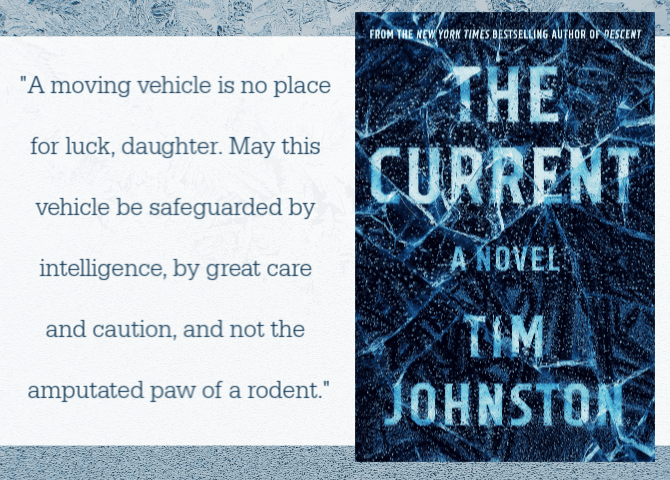
The Curious Charms of Arthur Pepper, by Phaedra Patrick: Sixty-nine-year-old Arthur Pepper has been a widower for a year, but he is still struggling to find peace and a new rhythm since his wife Miriam’s passing. On the anniversary of her death, while sorting through some of her old things, Arthur comes across a charm bracelet that he doesn’t recall seeing before. The discovery leads to an inter-continental journey in search of the sources of the various charms. As he hops from India to Paris, meeting previously unknown and very surprising people from Miriam’s life before marrying Arthur, the widower begins to realize what a mystery Miriam was. Each new encounter has him questioning everything he thought he knew about his wife, and whether or not what they had together is real. Arthur’s story is interspersed with that of his daughter, who is also grieving her mother’s death—as well as some other personal losses—while struggling to understand what is going on with her suddenly mysterious father.
This book has been compared with A Man Called Ove, and it’s definitely similar, though I found Arthur to be a much kinder (though not quite as memorable) protagonist than Ove. I enjoyed following him on his journey and loved seeing him evolve as a character—something I value in older protagonists who are too often portrayed as one-dimensional and stagnant. His journeys lead to some poignant reflections on marriage, relationships, and the making and meaning of a life. Such an endearing (though not saccharine) tale, that is equal parts humors and heartwarming.
My Rating: 4 Stars.
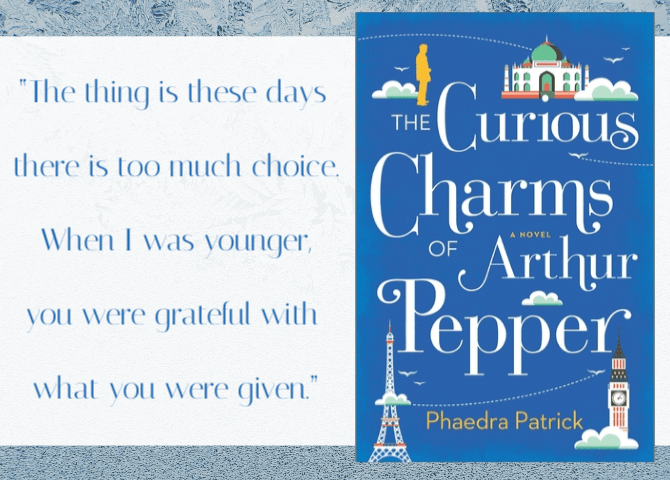
What have you been reading lately? Any titles I need to add to my TBR, or that I should be sure to avoid?!